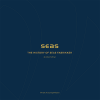Language, Culture, and Society
Language, our primary tool of thought and perception, is at the heart of who we are as individuals. Languages are constantly changing, sometimes into entirely new varieties of speech, leading to subtle differences in how we present ourselves to others. This revealing account brings together eleven leading specialists from the fields of linguistics, anthropology, philosophy and psychology, to explore the fascinating relationship between language, culture, and social interaction. A range of major questions are discussed: How does language influence our perception of the world? How do new languages emerge? How do children learn to use language appropriately? What factors determine language choice in bi- and multilingual communities? How far does language contribute to the formation of our personalities? And finally, in what ways does language make us human? Language, Culture and Society will be essential reading for all those interested in language and its crucial role in our social lives.
• Authors of each chapter are the leading specialists in their field • Each chapter gives a fair and unbiased coverage of the issues • Raises innovative questions concerning linguistic anthropology
ContentsIntroduction: Walking through walls Christine Jourdan and Kevin Tuite; 1. An issue about language Charles Taylor; 2. Linguistic relativities John Leavitt; 3. Benjamin Lee Whorf and the boasian foundations of contemporary ethnolinguistics Regna Darnell; 4. Cognitive anthropology Penelope Brown; 5. Methodological issues in cross-language colour naming Paul Kay; 6. Pidgins and creoles genesis: an anthropological offering Christine Jourdan; 7. Bilingualism Monica Heller; 8. The impact of language socialization on grammatical development Elinor Ochs and Bambi Schieffelin; 9. Intimate grammars: anthropological and psychoanalytic accounts of language, gender, and desire Elizabeth Povinelli; 10. Maximizing ethnopoetics: toward the fine-tuning (anthropological) experience Paul Friedrich; 11. Of phonemes, fossils and webs of meaning: the interpretation of language variation and change Kevin Tuite.
- Forlag: Cambridge University Press
- Utgivelsesår: 2006
- Kategori: Språk
- Lagerstatus: Ikke på lagerVarsle meg når denne kommer på lager
- Antall sider: 324
- ISBN: 9780521849418
- Innbinding: Innbundet











